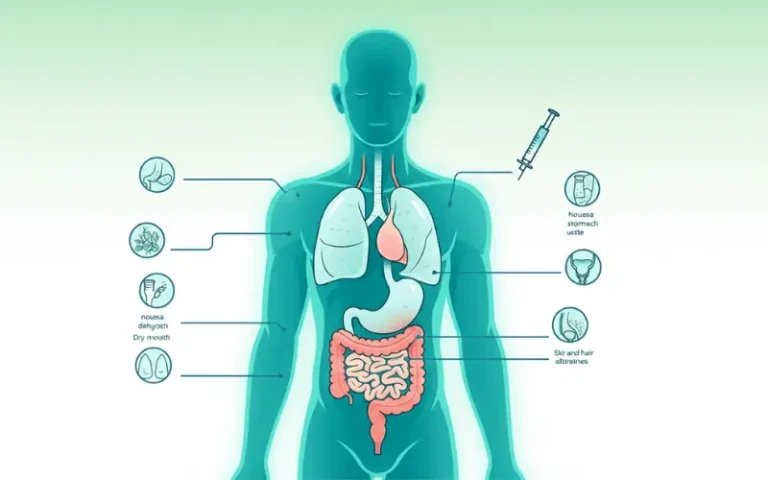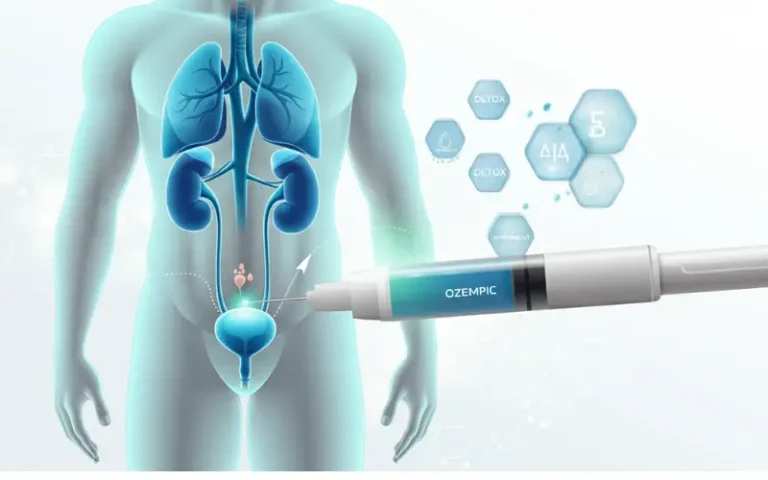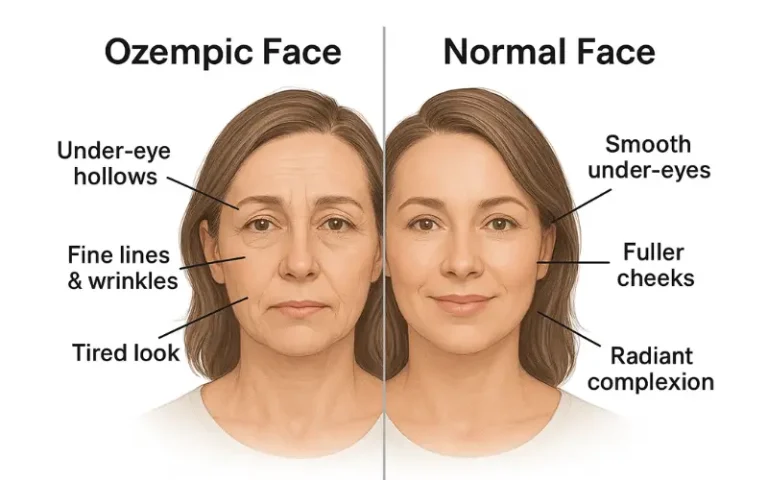What Does Ozempic Breath Smell Like? Causes, Remedies, and Prevention

Ozempic, a medication widely used for managing type 2 diabetes and aiding in weight loss, has brought significant health benefits to many. However, some users report an unexpected side effect, a distinct and unpleasant change in their breath. This phenomenon, often called “Ozempic breath,” can be a source of discomfort and concern. While the medication offers powerful benefits, understanding and managing its side effects is key to a positive experience.
This article will explore what Ozempic breath smells like, dive into its underlying causes, and provide practical remedies and prevention strategies to help you maintain both your health and your confidence.
What Is Ozempic Breath?
Ozempic breath refers to a specific type of bad breath, or halitosis, that some people develop while taking GLP-1 agonist drugs like Ozempic (Semaglutide). Unlike typical morning breath, it has a very particular character. People often describe the odour as:
- Fruity or sweet, similar to nail polish remover (acetone).
- Metallic or sour.
- Fishy, especially in burps.
This change can be sudden and persistent, causing social anxiety for those who experience it. While not everyone on the medication will develop this side effect, it’s common enough to warrant discussion.
Why Does Ozempic Cause Bad Breath?
Several metabolic changes triggered by Ozempic can contribute to this unique form of halitosis. The cause is often a combination of factors working together.
1. Ketosis: The Body’s Fat-Burning State.
Ozempic helps with weight loss by reducing appetite, which can lead your body into a state of ketosis. Ketosis occurs when your body doesn’t have enough carbohydrates to burn for energy and starts burning fat instead. A byproduct of this process is the production of ketones.
One of these ketones is acetone, which is released through your breath and can create a distinct fruity or chemical smell. This is the same reason people on the keto diet sometimes experience “keto breath.”.
2. Delayed Gastric Emptying.
A core function of Ozempic is slowing down how quickly food moves from your stomach to your intestines. This helps you feel full longer. However, this delay means food sits in your stomach for an extended period. This can lead to:
- Increased fermentation and buildup of bacteria.
- Acid reflux, where stomach acids travel back up into the oesophagus.
- Foul-smelling burps, sometimes described as “sulfa burps.”.
These digestive changes are a major contributor to the unpleasant odour associated with Ozempic breath.
3. Dry Mouth (Xerostomia).
Many users report experiencing dry mouth while taking Ozempic. Saliva is your mouth’s natural cleaning agent; it washes away food particles and neutralizes odour-causing bacteria. When saliva production decreases, bacteria can multiply unchecked. This leads to a higher risk of plaque, cavities, and persistent bad breath. The combination of dry mouth and other factors creates a perfect storm for oral odour.
4. Changes in Gut Bacteria.
Ozempic can alter the balance of bacteria in your gut. As digestion slows, it can lead to an overgrowth of certain bacteria that produce volatile sulfur compounds (VSCs). These are the same compounds responsible for classic halitosis and can contribute significantly to Ozempic breath.
How Common Is Ozempic Breath?
While there isn’t large scale clinical data focused solely on the prevalence of Ozempic breath, anecdotal evidence is plentiful. Online forums and patient communities are filled with stories of people noticing a change in their breath shortly after starting the medication. In one clinical trial, about 10% of participants taking Semaglutide reported burping as a side effect, which is often linked to unpleasant odors.
Have you experienced Ozempic breath? Share your tips below!
How to Manage and Prevent Ozempic Breath
If you’re dealing with this side effect, the good news is that it’s often manageable. Here are some effective strategies for how to get rid of Ozempic breath.
1. Stay Hydrated.
Combatting dry mouth is your first line of defence.
- Drink plenty of water throughout the day to keep your mouth moist and help flush away bacteria.
- Avoid dehydrating beverages like caffeine and alcohol.
2. Level Up Your Oral Hygiene.
A rigorous oral care routine is non-negotiable.
- Brush your teeth at least twice a day with fluoride toothpaste.
- Floss daily to remove trapped food particles.
- Clean your tongue using a tongue scraper to remove bacteria buildup.
- Use an alcohol free mouthwash to avoid further drying out your mouth.
3. Stimulate Saliva Production.
- Chew sugar free gum or mints, especially those containing xylitol, which can help fight bacteria.
- Suck on sugar free lozenges.
4. Adjust Your Diet.
Small dietary changes can make a big difference.
- Eat your last meal at least 3-4 hours before bedtime to reduce acid reflux.
- Incorporate healthy carbs in moderation. If ketosis is the primary cause, slightly increasing your carb intake may reduce the acetone smell.
- Eat probiotic rich foods like yoghurt or kefir to support a healthy gut microbiome.
5. Avoid Brushing Immediately After Reflux.
If you experience acid reflux or vomiting (another potential side effect), don’t brush your teeth right away. Brushing can spread the acid and damage your enamel. Instead, rinse your mouth with water or a solution of water and baking soda, then wait at least 30 minutes before brushing.
When to See a Doctor or Dentist
While Ozempic breath is usually a benign side effect, you should consult a professional if:
- The bad breath is severe and doesn’t improve with at home care.
- You notice signs of tooth decay or gum disease, like bleeding gums or tooth sensitivity.
- You are experiencing persistent and severe gastrointestinal issues like acid reflux or vomiting.
Your dentist can rule out other oral health problems. At the same time, your doctor can help you manage the medication’s side effects or adjust your dosage if necessary.
Conclusion
Experiencing Ozempic breath can be an unwelcome surprise, but it doesn’t have to overshadow the medication’s benefits. By understanding its causes from ketosis and delayed digestion to dry mouth, you can take targeted steps to manage it. Staying hydrated, maintaining excellent oral hygiene, and making small dietary adjustments are powerful tools.
Always remember to discuss any side effects with your healthcare provider. They can offer personalized advice to ensure your treatment plan supports your overall health and well-being.







